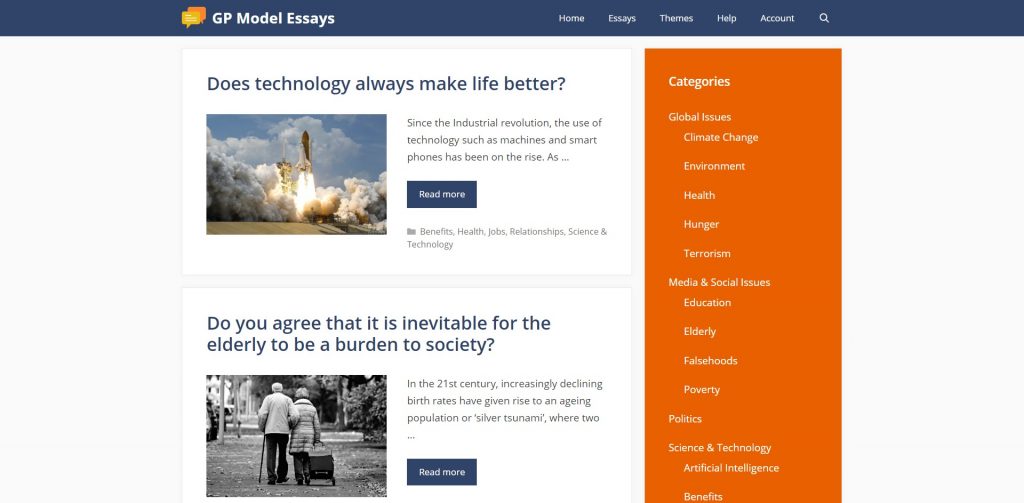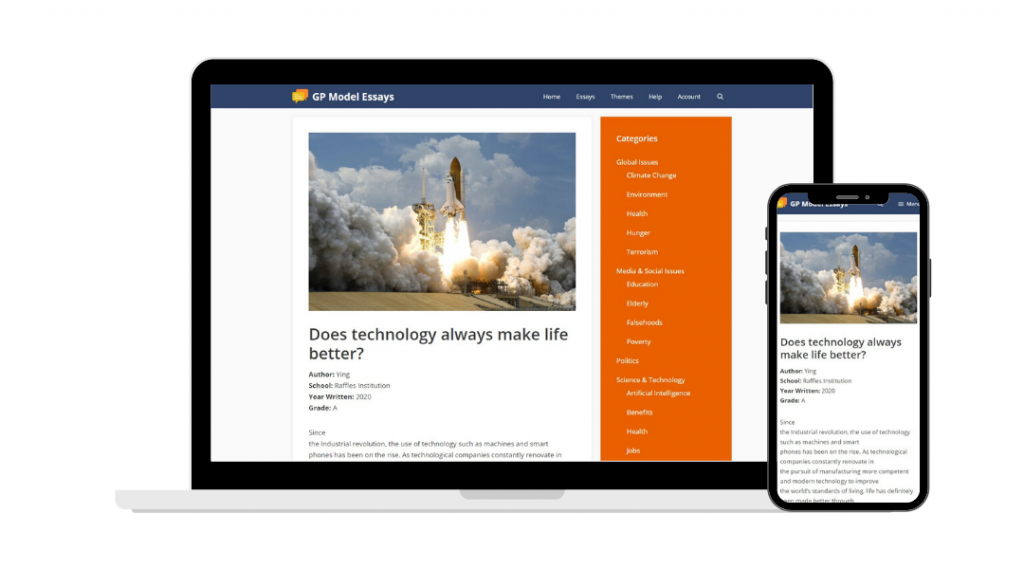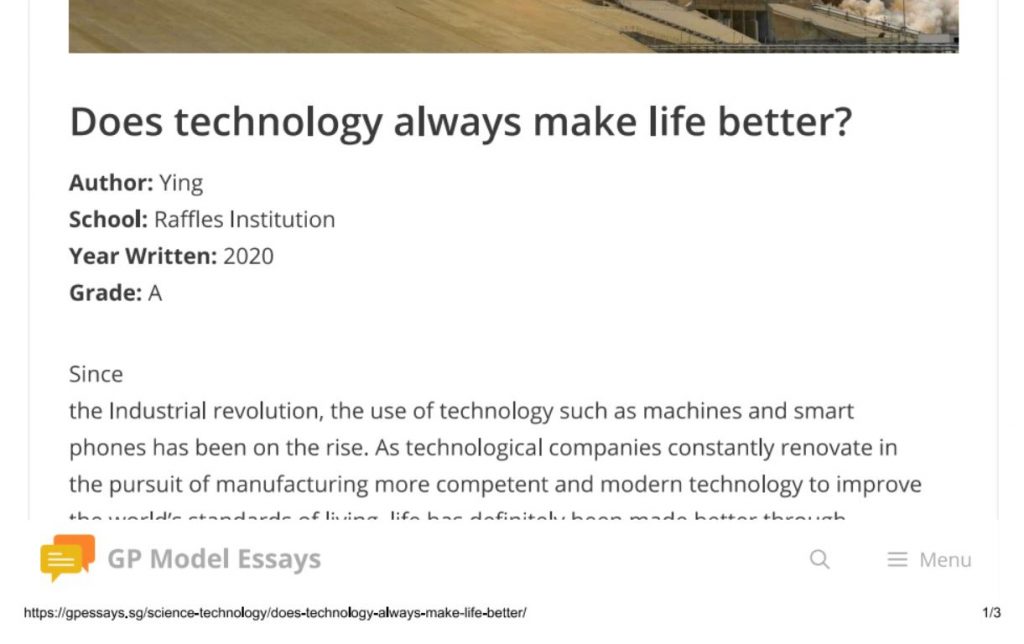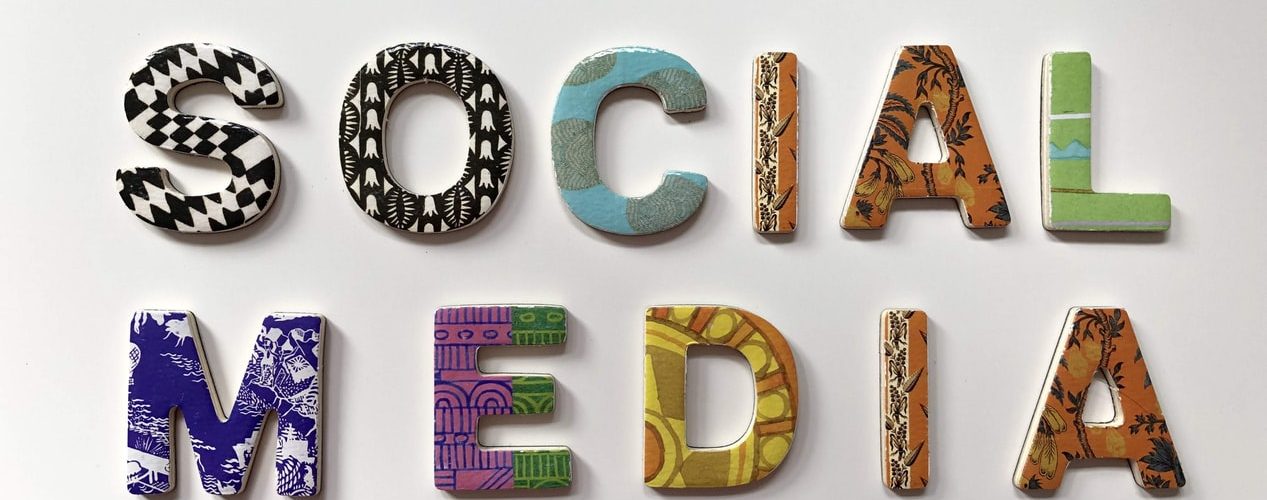To what extent has social media devalued true friendship in your society?
Table of Contents

Introduction
The benefits of social media on friendship, the drawbacks of social media on friendship, the effect of social media on face-to-face interactions.
Social media has revolutionized the way we connect with others, making it easier to stay in touch with friends and family, and allowing us to form new relationships. However, the increased reliance on social media has also had some negative impacts on the value of true friendship.
The superficial nature of online relationships, the difficulty in forming deep and meaningful connections, and the negative impact of social media comparisons on self-esteem are all drawbacks of social media on friendship. The decline in face-to-face interactions, the decline in interpersonal communication skills, and the loss of nonverbal cues have all contributed to the devaluation of true friendship.
However, it is important to balance our use of social media with face-to-face interactions to maintain the value of true friendship. By prioritizing in-person interactions and preserving the importance of face-to-face connections, we can ensure that our relationships remain deep and meaningful.
In conclusion, the impact of social media on friendship is complex and depends on how individuals choose to use it. While it has made it easier to stay in touch with friends and family, it has also encouraged superficial relationships and reduced face-to-face interactions. By being mindful of its potential drawbacks and preserving the value of true friendship, we can ensure that social media does not completely devalue the meaningful relationships that form the foundation of our lives.
I. Introduction
- Definition of social media
- The impact of social media on friendship
II. The benefits of social media on friendship
- Increased accessibility to friends
- Ability to stay in touch with friends who live far away
- Easier to maintain relationships with old friends
III. The drawbacks of social media on friendship
- The superficial nature of online relationships
- Difficulty in forming deep and meaningful connections
- The negative impact of social media comparisons on self-esteem
IV. The effect of social media on face-to-face interactions
- Decreased face-to-face communication
- The impact of social media on real-life conversations
- Difficulty in building trust and empathy through online interactions
V. Conclusion
- Summary of main points
- Reflection on the balance between the benefits and drawbacks of social media on friendship
- Final thoughts on the importance of maintaining a balance between online and face-to-face relationships to preserve the value of true friendship.
Social media has revolutionized the way we communicate and connect with others. It has provided a platform for people to share their thoughts, opinions, and experiences with a wider audience, enabling them to connect with friends and family from all over the world. However, with the increasing prevalence of social media, it has also raised questions about the impact of these online interactions on the value of true friendship.
The impact of social media on friendship has been a topic of debate, with some arguing that it has made it easier to connect with people and maintain relationships, while others argue that it has contributed to the devaluation of true friendship. On one hand, social media allows people to stay in touch with friends who live far away and provides an easy way to maintain relationships with old friends. On the other hand, the superficial nature of online relationships and the difficulty in forming deep and meaningful connections has raised concerns about the impact of social media on the quality of our friendships.
This essay will explore the extent to which social media has devalued true friendship by examining both the benefits and drawbacks of social media on friendship. The thesis statement of this essay is: While social media has made it easier to connect with people and maintain relationships, it has also contributed to the devaluation of true friendship to some extent.
There are several benefits of social media that have positively impacted friendship, some of which are:
Increased accessibility to friends : Social media platforms allow users to connect with friends and family from all over the world, making it easier to maintain long-distance relationships. People can stay in touch with friends they have not seen in a long time or keep up-to-date with the lives of friends who live far away.
Ability to stay in touch with friends who live far away : Social media has made it easier to maintain relationships with friends who live far away, enabling users to stay connected with people they care about despite the physical distance between them. Users can send messages, share updates, and participate in online groups to stay connected with their friends.
Easier to maintain relationships with old friends : Social media has also made it easier for people to maintain relationships with old friends. People can reconnect with friends from their past through platforms like Facebook, and rekindle relationships that may have otherwise been lost.
These benefits of social media have helped people to maintain their friendships and connect with others in new and innovative ways. By providing an easy and accessible platform for communication and connection, social media has played a significant role in strengthening and preserving our friendships.
While social media has several benefits for friendship, it also has some drawbacks that have contributed to the devaluation of true friendship, including:
The superficial nature of online relationships : Social media often encourages users to present a curated and idealized version of themselves, leading to superficial relationships. People may not reveal their true thoughts and feelings online, making it difficult to form deep and meaningful connections. Worse still, in my society, we often witness scams related to online dating where people have been tricked into sending money or sensitive information to individuals posing as potential romantic partners. These scams often target vulnerable people and can have devastating consequences for their finances and emotional well-being.
Difficulty in forming deep and meaningful connections : The lack of face-to-face interaction and physical touch can make it challenging to form deep and meaningful connections through social media. This can lead to a lack of emotional intimacy and reduced empathy, making it more challenging to develop strong relationships.
The negative impact of social media comparisons on self-esteem : Social media often encourages users to compare themselves with others, leading to feelings of inadequacy and low self-esteem. This can be damaging to our self-worth and negatively impact our friendships, as people may be less likely to share their vulnerabilities and weaknesses online.
Addiction and obsession : Social media can also be addictive, leading to an obsession with checking notifications and scrolling through feeds. This can interfere with face-to-face interactions and real-life relationships, leading to a decline in true friendship.
These drawbacks of social media on friendship highlight the limitations of online interactions and the importance of maintaining face-to-face relationships. By recognizing these limitations, we can strive to balance our online and face-to-face interactions to preserve the value of true friendship.
Social media has also had an impact on face-to-face interactions, with some people relying more on online interactions rather than in-person ones. The following are some of the effects of social media on face-to-face interactions:
Reduced face-to-face time with friends : With the rise of social media, people are spending less time engaging in face-to-face interactions with friends. People are more likely to spend time scrolling through their social media feeds and sending messages to their friends, rather than spending time together in person.
Decline in interpersonal communication skills : The increased reliance on social media has also contributed to a decline in interpersonal communication skills. People may struggle to communicate effectively in person, as they have become accustomed to relying on social media as their primary means of communication.
Loss of nonverbal cues : Face-to-face interactions are essential for interpreting nonverbal cues, such as body language, tone, and facial expressions. The absence of these cues in online interactions can make it challenging to interpret the emotions and intentions of others, leading to misunderstandings and miscommunications.
The decline in face-to-face interactions and the accompanying decline in interpersonal communication skills and loss of nonverbal cues have contributed to the devaluation of true friendship. By balancing our online and face-to-face interactions, we can maintain the value of true friendship and preserve the importance of face-to-face connections.
In conclusion, social media has both benefits and drawbacks that have impacted the value of true friendship. While social media has made it easier to connect with friends, stay in touch with those who live far away, and reconnect with old friends, it has also encouraged superficial relationships, reduced face-to-face interactions, and contributed to a decline in interpersonal communication skills.
It is essential to recognize the limitations of online interactions and balance our use of social media with face-to-face interactions. By prioritizing in-person interactions and preserving the value of true friendship, we can maintain deep and meaningful relationships with those we care about.
In the end, the impact of social media on friendship is complex and depends on how individuals choose to use it. By being mindful of its potential drawbacks and making an effort to preserve face-to-face interactions, we can ensure that social media does not completely devalue the true and meaningful relationships that form the foundation of our lives.
Buy me a coffee

Share this article
FREE General Paper Essays By Top Students
Find the best General Paper model essays written by students from top Junior College in Singapore.
Wide Collection of Quality GP Essays
You can expect to find a extensive collection of GP model essays across a wide range of themes, such as social media, politics, governance, environment, education, nuclear energy and so much more. Easily find the theme that you are interested in and focus for your GP exams. Moreover, our essays are written by top students from the best JCs in Singapore who have consistently scored well for their GP examination.

Frequently Updated Essays
Using relevant and updated examples are essential for an exemplary essay. With our GP model essays, not only can you learn how to apply the examples and support your argument well, you can also access to a wide range of recent examples that makes your GP essay stand out among the rest.
Read Essays Anywhere
No matter where you are, you can read the GP model essays using your mobile phone or laptop! Simply login to your paid account and you can start reading the essays. No more carrying of heavy books around in MRTs or library when you just need to read a few pages of essay!

Categorised Into Essay Themes
Strategise your learning by selecting and narrow the GP essay themes that you want to focus for your GP examination. We make it very easily for you to select the essays that you want to study. No matter what areas you are interested in, we have the best GP essays for you to study!
Print Essays Easily
Do you prefer to read and annotate the essays on hard copy? No problem! You can easily print out the essay that you want to study. There is no need to carry heavy essays book when you only need to study a few pages!

General Paper Model Essays
Improve your General Paper essay score by learning from GP model essays!
Get General Papers essays written by real top students in Singapore. Learn how model essays brilliantly discuss their points and cleverly make use of their examples so that you can apply on your own essays and score your ‘A’ ! These essays are written under exam conditions so the standards are very achievable .
We will constantly update our collection with newly written essays with recent examples from 2018 – 2020, so your essays will remain relevant and engaging .


Sample General Paper Model Essays

We aim to upload reguarly, ranging from different GP themes so that all our subscribers can benefit.
To access the essays using your mobile phone, login to your account with a paid subscription. For security reasons, you will be logged out every 4 hours.
If you are facing problems with your account, kindly WhatsApp us at +65 8894 9464. We will get back to you within 24 hours.

GP Essay #30: To what extent does social media pose a challenge for the government?

The expansion of online social networking has given citizens unprecedented ability to share information, create communities and organize social movements. From a governmental perspective, this could be quite a challenge as social media may be used as a platform to directly challenge the government. It is also a ‘Wild West’ in which misinformation could spread and hatred incited quickly with little means for regulation. Currently, while there are measures to mitigate the challenges posed by social media, they are still in their infancy and likely, very limited in their effectiveness. At the same time, the benefits of social media hardly offset the challenges, and hence it is reasonable to argue that social media poses more of a challenge to governments than not
The widespread reach and unregulated nature of social media is perhaps the biggest reason governments find it a challenge. According to the International Communication Union, there are more than 3 billion Internet users worldwide. Most will have access to social media of some sort—such as Facebook, Instagram, Twitter, YouTube and LinkedIn. This means that large segments of the population could be influenced by the use of social media for communication, either directly or indirectly. These platforms are difficult to regulate as there are very few existing laws governing social media, and it is difficult to enforce rulings when the platform’s owners are based in a different country. The sheer volume of information on those platforms also makes it impossible for regulators to keep close watch on everything. The most famous use of social media to challenge governmental authority is perhaps the Arab Spring of 2011, where social media was used to rapidly spread awareness of and coordinate the protests. The uprising led to the overthrow of Ben Ali, Mubarak and Gaddafi in Tunisia, Egypt and Libya respectively, and civil war in most others. Notwithstanding the fact that those governments were oppressive and an uprising may perhaps be justified, the fact remains that the use of social media could turn the people against their leaders with unprecedented intensity and speed. Similarly, in China, Facebook was used during the July 2009 Urumqi Riots by the minority Muslims in Xinjiang which led to the deaths of almost 200 people and almost 2,000 injured, in turn leading to the ban of the social media platform nation-wide. However, even on alternate, highly-censored platforms, many users have found sophisticated ways of going around censorship and regulation—the use of Virtual Private Network (VPN) technology allows users to access apps and websites which are officially banned, and the creative use of words and phrases have been able to circumvent regulation. For instance, netizens in China use “May 35 th 1989” to refer to the date Tiananmen Incident—“July 4 th 2019”—which itself is a banned phrase as the incident remains taboo. For governments who want to preserve stability and control over its citizens, social media poses a serious challenge as a means in which uprisings could be quickly and widely coordinated and gain a high public profile.
Even when social media use does not lead to mass revolt, it could still pose a challenge as an arena in which dangerous ideas circulate. Terrorist groups such as ISIS regularly upload threatening videos and propaganda messages on social media, leading to ‘self-radicalisation’ among citizens abroad. Foreign governments may also use social media to interfere in the affairs of another nation—a gross violation of the norms of international conduct, where it is generally agreed that countries would not intervene in each other’s domestic affairs. In August 2019, the New York Times reported that China was using LinkedIn to recruit spies in the US, by posing as businessmen or academics inviting American targets to travel to China for an academic conference or presentation, or a business opportunity. From there, the Chinese agents start building a rapport with their targets and slowly convince them to hand over state secrets. The US is also a victim of Russia’s use of Facebook to interfere in the 2016 Presidential Election that saw the election of Donald Trump—at the time perceived by Russia as their preferred candidate. Exacerbating these problems is the proliferation of “fake news”, which many experts suspect not only influenced the outcome of the 2016 US Presidential Election, but the 2016 Brexit vote in the UK as well. In Singapore, the government passed a new piece of legislation in 2019—the Protection from Online Falsehoods and Manipulation Act—proving that social media poses a serious enough challenge to governments hoping to protect their citizens from malicious content. Additionally, profit-oriented social media companies have a stronger interest in earning profits than adopting responsible behaviour. For instance, users are particularly vulnerable to confirmation bias as online algorithms detect users’ personal opinions based on their online behaviour, and upload relevant posts on their news feed accordingly. Since most people currently receive their daily news from social media platforms, this means that society may become more polarised. Therefore, the unregulated but highly populated ‘Wild West’ of social media poses a huge, and likely difficult to solve, challenge for governments as dangerous information circulate widely and quickly among their citizens.
The challenges posed by social media to governments may be negligible if they provide them with substantial benefits; however, that is unlikely to be the case. Politicians may find social media useful in helping them directly communicate with their voters. This makes leaders closer to the ground and more relatable. An extreme case happened in Turkey in 2016, when President Recep Tayyip Erdogan managed to survive a military coup by appealing to his supporters via a live stream on FaceTime. More typically, politicians use social media to upload photos of milestone events, inform followers of upcoming events, and have a direct line of communication with the public. However, their actions are also heavily scrutinised—any misstep on social media, no matter how slight, could cost them politically. Social media now acts as a check and balance against the government—something like a ‘Fifth Estate’ or watchdog exposing governmental wrongdoings. For instance, in 2011, American congressman Anthony Weiner was forced to resign after a sexually suggestive photo he sent to a woman via Twitter was leaked to the public. With the ease in which misinformation can be spread through fabricated or outdated photos, or situations taken out of context, even the most honest and upright government would likely hold some reservations over the positive aspects of social media. Ultimately, most governments would conclude that social media ultimately poses a net challenge, and is largely a necessary evil that has to be managed.
In summary, social media is largely a challenge to government as a widely used by highly unregulated platform in which forces of disruption could spread like wildfire. Citizens may be driven to rise up against their leaders, or have their views distorted by outside propaganda. Such problems are threats to national security, and despite the benefits social media brings to governments in connecting with the people, it is safe to conclude that most governments rightly perceive social media as largely a threat that produces only some positive side effects.
Home — Essay Samples — Sociology — Social Media — The Impact of Social Media: Causes and Effects
The Impact of Social Media: Causes and Effects
- Categories: Effects of Social Media Social Media
About this sample

Words: 1226 |
Published: Feb 7, 2024
Words: 1226 | Pages: 3 | 7 min read
Table of contents
Introduction, cause 1: increased connectivity and communication, cause 2: promotion of self-expression and individuality, cause 3: access to information and awareness, effect 1: impacts on mental health, effect 2: influence on societal norms and values, effect 3: privacy and security concerns.

Cite this Essay
To export a reference to this article please select a referencing style below:
Let us write you an essay from scratch
- 450+ experts on 30 subjects ready to help
- Custom essay delivered in as few as 3 hours
Get high-quality help

Verified writer
- Expert in: Sociology
+ 120 experts online
By clicking “Check Writers’ Offers”, you agree to our terms of service and privacy policy . We’ll occasionally send you promo and account related email
No need to pay just yet!
Related Essays
5 pages / 2417 words
2 pages / 960 words
2 pages / 1022 words
2 pages / 927 words
Remember! This is just a sample.
You can get your custom paper by one of our expert writers.
121 writers online
Still can’t find what you need?
Browse our vast selection of original essay samples, each expertly formatted and styled
Related Essays on Social Media
Abbas, Jaffar, et al. “The Impact of Social Media on Learning Behavior for Sustainable Education: Evidence of Students from Selected Universities in Pakistan.” Sustainability, vol. 11, no. 6, 2019, pp. 1683-1705.Yacoub, [...]
Social media has become an integral part of our daily lives, reshaping the way we connect, communicate, and interact with one another. While it offers numerous benefits, it has also sparked debates about its impact on personal [...]
The era of social media has revolutionized how we connect, communicate, and share information. However, beneath the glossy filters and curated posts lies a pervasive issue - the prevalence of fake content. This essay delves into [...]
The rise of social media platforms has undoubtedly transformed the way we connect, communicate, and share information. However, it has also given birth to what has come to be known as "The Social Dilemma." In this comprehensive [...]
Social media creates a dopamine-driven feedback loop to condition young adults to stay online, stripping them of important social skills and further keeping them on social media, leading them to feel socially isolated. Annotated [...]
Every time you open the television, surf the internet or open a magazine, there will always be a flawless girl on an ad, or a perfectly built guy. These things start to feed on to our insecurities and we are swept easily by the [...]
Related Topics
By clicking “Send”, you agree to our Terms of service and Privacy statement . We will occasionally send you account related emails.
Where do you want us to send this sample?
By clicking “Continue”, you agree to our terms of service and privacy policy.
Be careful. This essay is not unique
This essay was donated by a student and is likely to have been used and submitted before
Download this Sample
Free samples may contain mistakes and not unique parts
Sorry, we could not paraphrase this essay. Our professional writers can rewrite it and get you a unique paper.
Please check your inbox.
We can write you a custom essay that will follow your exact instructions and meet the deadlines. Let's fix your grades together!
Get Your Personalized Essay in 3 Hours or Less!
We use cookies to personalyze your web-site experience. By continuing we’ll assume you board with our cookie policy .
- Instructions Followed To The Letter
- Deadlines Met At Every Stage
- Unique And Plagiarism Free

2019 A-Level General Paper (GP) Paper 1 Essay Questions
We correctly predicted a huge number of essay questions that came up for A-Level GP 2019! Just check out our Instagram page @generalpaper to check out our highlight on this (where we show a story we posted before the A-Level paper, spotting the topics!)
Some of these questions came as no surprise, keeping in the Cambridge tradition of likely setting the exam two years before (or based on two years before)—considering the rise of Donald Trump, in particular—these were some questions we prepared our students for.
P.S. for other GP questions from other years, just enter https://GP.sg/ (followed by year number) —e.g. https://GP.sg/2022 ! We are still in process of adding these for all years, though!

IMAGES
VIDEO
COMMENTS
It all started with Six Degrees. Launched in 1997, this website enabled users to upload a profile and make friends with other users. It was the predecessor of the many social networking sites to come, and its creation heralded the advent of a new era - an era in which social media would emerge as a new medium of communication. Defined as a group of Internet-based applications that allow the ...
Social media allows everyone to know about social issues, whether they occur within one's country or across the globe - even within the comfort of their own homes. The international nature of social media also means that information of happenings around the world can transcend national boundaries and be heard and watched by individuals ...
The 2021 paper was made up of a notably large number of questions under the media theme: a third of questions were under the media theme, covering topics of social media, news, films and advertising. We managed to spot the question on advertising despite it being a rather niche topic, and our students that year … 2021 A-Level General Paper (GP) Paper 1 Essay Questions Read More »
This essay will explore the extent to which social media has devalued true friendship by examining both the benefits and drawbacks of social media on friendship. The thesis statement of this essay is: While social media has made it easier to connect with people and maintain relationships, it has also contributed to the devaluation of true ...
FREE Model General Paper essays written by Singapore top A Level GP students. Our General Paper essays are written from 2019 to 2020 with relevant examples. ... You can expect to find a extensive collection of GP model essays across a wide range of themes, such as social media, politics, governance, environment, education, nuclear energy and so ...
The expansion of online social networking has given citizens unprecedented ability to share information, create communities and organize social movements. From a governmental perspective, this could be quite a challenge as social media may be used as a platform to directly challenge the government. It is also a 'Wild West' in which misinformation could spread and hatred incited quickly ...
Social Media Argumentative Essay Topics. This is a comprehensive resource to help you find the perfect social media essay topic. Whether you're navigating the complexities of digital communication, exploring the impact of social media on society, or examining its effects on personal identity, the right topic can transform your essay into a captivating and insightful exploration.
Sure, social media's brought lots of good stuff. But there are worries about how it affects society too. In this essay, let's dive into how social media shapes our lives and what that really means. The Good and Bad of Social Interaction. Social media's made chatting with others super easy and fast. A few clicks and bam!
3. Impact of social media on societal values and the concept of "online identity" Social media has also blurred the lines between our online and offline identities. It has created a culture of constant self-presentation and self-monitoring, leading individuals to prioritize their online persona over their real-life experiences.
A-Level General Paper 2019 Essay Questions. We correctly predicted a huge number of essay questions that came up for A-Level GP 2019! Just check out our Instagram page @generalpaper to check out our highlight on this (where we show a story we posted before the A-Level paper, spotting the topics!). Some of these questions came as no surprise, keeping in the Cambridge tradition of likely setting ...